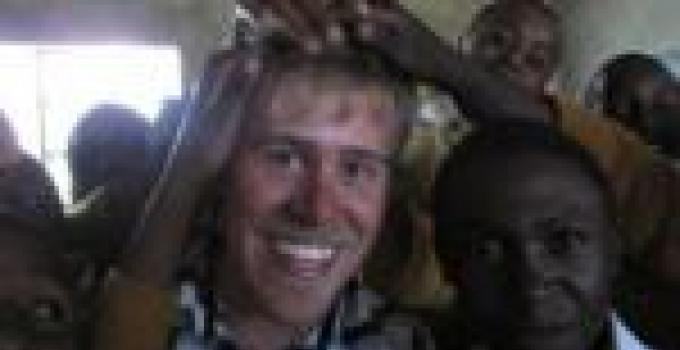A University of Alberta student has accused private school company Bridge International Academies used intimidation tactics after he was arrested last month in Uganda while researching its schools.
Ugandan police arrested Curtis Riep on May 30 for allegations of trespassing and impersonation. They dropped both charges the next day.
Riep said he believes the arrest was orchestrated by Bridge International Academies. He said his research could cast the schools in a negative light.
"This has been like nothing I've ever experienced," he said about the arrest.
Riep, a PhD candidate in the University of Alberta's Department of Educational Policy Studies, was investigating the chain of low-fee private schools run by Bridge International Academies in Uganda.
Riep said he went to several BIA schools in Uganda to find out more about their teaching methods, and claimed he was warmly welcomed by staff. He didn't have a formal agreement with the organization to do research on their property, but said he did arrange an interview with two of its executives in the country's capital of Kampala.
He met them at a cafe and said a detective and two uniformed police officers appeared at their table before the coffee did. They took Riep to a police station in Kyengera, about 13 kilometres away, for questioning.
Reporters were waiting
When they arrived at the station, Riep said a cohort of local reporters stood waiting for him.
![]()
Researcher Curtis Riep visited Bridge International Academies schools in central Uganda for his research on the organization's impact on the country. (Supplied/Curtis Riep)
"As soon as I stepped out of the car, they started taking photos of me, kind of bombarding me with questions," Riep said.
The organization has since taken responsibility for the allegations that led to Riep's arrest. They claim he impersonated a BIA employee to unlawfully get into five of their schools.
"We are open to anyone that wants to come and see the way we work," said Lucy Bradlow, a spokesperson for BIA. "For purely safety reasons, we can't allow someone around young children that's pretending to be someone he's not."
But Riep said he identified himself at every school he went to, calling ahead to announce his visit wherever possible.
According to Riep, the allegations were fabricated, which he said he was able to prove to police because he signed into visitors' books at each school with his full name. Riep said he also included the name of the organization that commissioned his research, a worldwide federation of teachers' associations and unions called Education International.
Riep returned to Canada on June 3, and said the arrest has left him shaken, yet determined.
"I think they wanted to engage in some kind of intimidation tactic to try and scare me away from doing the research which I was legitimately hired to do," Riep said.
"This is my duty, this is my work and although Bridge is trying to deter me, scare me, and repress information which I have collected, they won't beat me down. So that's that."
People asked to report Riep to police
Bridge International Academies took out a notice in a Ugandan newspaper, urging anyone who saw Curtis Riep to contact police immediately.
Bridge International also took out a newspaper notice in Uganda with a photo of the researcher, asking the public to report him to police.
"From our perspective, all we did is call the police and alert the authorities that an unknown man was walking around a primary school claiming to be someone we knew he was not," Bradlow said. "When he called the head of our Uganda office, we called the police and the police came and arrested him."
Expansion halted in Uganda
Bridge International Academies expanded into Uganda last year, and is backed by high-profile investors such as Facebook's Mark Zuckerberg. Its schools are for-profit and offer private education to "families who live on less than $2 US per day," according to BIA's website.
Though students can request funding for their tuition, not all of them are eligible for sponsorship.
The organization took a foothold in Uganda with seven schools last January, and now has a total of 62 BIA schools throughout the country.
In April, the Ugandan government suspended any further growth, citing concerns about the legality of the schools under a national education act as well as the quality of their teachers, infrastructure, methodology and curricula.
"Following this rapid expansion, the Ministry is greatly concerned about several issues," states a letter signed by Rose Nassali Lukwago, the permanent secretary of Uganda's Ministry of Education and Sports Management.
"Halt the expansion of the Bridge International Academies forthwith, until the Ministry establishes that these schools, and those yet to open later, are in conformity with our Basic Requirements and Minimum Standards."
BIA acknowledged its expansion in Uganda has been suspended, but Bradlow said it's all part of a standard two-year registration process for private schools in the country.
"They wanted to make sure we completed the registration process for our longest-running schools before we continued," Bradlow said. "We expect to continue to expand in the future."
There is no mention of the registration process in the letter from the Ministry of Education and Sports Management.

